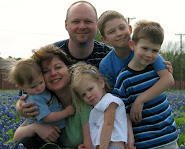We will be celebrating for the first time this year the Festival of lights or the Festival of dedication, also known as Hanukkah. It is interesting to note that our Savior, Jesus, likely observed this date as it is mentioned as a point of reference in scripture (John 10:22-39). It would be much like you or I would use July 4th as a point of reference when speaking of that time of year.
Hanukkah (sometimes spelled Chanukah), is observed for eight days, beginning on the evening of the twenty-fifth day of the month of Kislev. This year it starts at sundown, Tuesday, December 4th, and lasts for eight days thru Wednesday, December 12th. While it is not one of God’s commanded Holy Days (His Feasts) described in the bible (Leviticus 23; also read Matthew 5:18), it is a wonderful remembrance of a historical date that included miracles from God. It is a time of renewed dedication, faith, hope and spirituality. It's a time that says: "Never lose hope." Hanukkah commemorates the victory, through the miracles of God, of a small band of Maccabees over the pagan Syrian-Greeks who ruled over Israel.
Over 2300 years ago in Judea (Israel) there lived many Hebrews. There also lived a very wicked man called King Antiochus IV. Antiochus ordered all the Jewish people to give up their God, religion, and customs and worship only the Greek Gods. By his orders Jewish temples were destroyed or used for his pagan purposes and those Jews who would not worship how he commanded were severely punished.
Some of the Jewish people chose to obey Antiochus, but others refused. Now one of these men who refused to worship the Greek gods was Judah Maccabee. Judah had four brothers and together they formed an army with as many as would join with them. Their goal was to defeat the Syrians that oppressed them so that the Jewish people could be free to worship, as they believed. They chose to call themselves Maccabees, which means hammer. The Maccabees and the Syrians fought for about three years until finally the Maccabees defeated the Syrians and reclaimed the Temple in Jerusalem.
Their first priority was to clean and rededicate the Temple in Jerusalem to the service of God. So they washed and scrubbed the temple clean and removed the Greek symbols and idols from within the walls. Now they were ready to rededicate it unto God (165 BCE). Remember Chanukah/Hanukkah means "rededication". The only problem was that Judah and the Judean heroes could not find any blessed oil (olive oil) to light the lamps. They searched and searched. Finally, in one of the Temple chambers they discovered a very small cruse of oil.
According to the Talmud, at the re-dedication following the victory of the Maccabees over the Seleucid Empire, there was only enough consecrated olive oil to fuel the eternal flame in the Temple for one day. Miraculously, the flames of the menorah burned and burned and burned and burned and burned and burned and burned and burned. For eight days they burned. (I bet you counted). Those eight miraculous days were chosen as the eternal symbol to commemorate the miracle of Chanukah - the eight day long Festival of Lights, where we light the Menorah each evening, publicizing the miracle God performed more than 2000 years ago.
There are many additional traditions with which many people are familiar with Hanukkah. Special blessings are prayed at the evening lighting of each candle. There is the dreidel game, which is a four-sided, spinning top with a Hebrew letter on each side. In Israel the letters mean "A Miracle Happened Here.” Traditionally, fried foods including latkes and sufganiyot (jelly donuts) are served representing the oil that burned in the menorah. And some have even incorporated gift giving on each of the eight days. However, none of the traditions have anything to do with what the historical date truly represents.
It is interesting to read about Yeshua (Jesus) being the "light of the world" understanding that his fire can never be quenched. Similarly, the Menorah was sustained throughout the entire dedication period with only enough oil for one day - the "Miracle" of the Feast of Dedication or Lights.
Wishing you a happy time of remembrance of our Savior’s and each of our ancestry.









